Professor Spotlight: Joe Shosh
Dr. Joseph Shosh received his B.A. from Moravian College and his M.A. and Ph.D. from New York University. In addition to teaching at Moravian, he is an initiator of the Action Research Network of the Americas (ARNA) and serves as chair of their Executive Committee of the Coordinating Group. He is also an associate editor of the “International Handbook of Action Research,” and has received the National Council of Teachers of English Paul and Kate Farmer English Journal Writing Award, the James N. Moffett Award for Classroom Research, and Cornell University’s Merrill Scholar Teaching Award.
What inspired you to go into your field of study?
I think on some level I always knew I wanted to teach. I was a poor country boy growing up. Historically, public school teaching has been an entry point for poor people to enter the middle class. I worry that maybe that is not as true in 2018 as it was for me. My grandfather worked at Bethlehem Steel, my father was a truck driver. These were hard-working people. I was a small, geeky kid, and I didn’t think I had these strong, physical talents. I love to read, I love to write, I love to solve problems, I love to do math, and I was fortunate that my multiple intelligences matched the school’s. It’s unusual for poor kids to excel in public education, and I had the opportunity to do that and to come to Moravian for my undergraduate degree.
What research are you currently working on?
I am working with local teachers, several of whom are Moravian alums, to write a book about leadership in local public schools. It’s about how we as teachers can change our pedagogy to support every student to find the leader within.
I have [been invited to write a chapter] for a book that looks at the 21st-century notion of what it means to be an academic. It’s an international collection. I will be one of maybe two American professors who will contribute to the book. I’m probably there because I define academics in ways that are inquiry-and field-based. To me, my real academic work happens in schools, in the community, and in partnership with people who might not call themselves academics but are academic.
I also have a third piece, which is an invited article in the Educational Action Research Journal about the ways in which teachers in our community perceive their work as creating new knowledge for a democratic society.
What do you think is the most important recent development in your field of study?
There really are so many to choose from. When you talk about my whole field, it’s looking at disabilities in new ways. I’m really proud of the disabilities studies field and how that’s changing the special education field and the way that we see everybody’s strengths and contributions. That real shift has happened since I left K-12 teaching and came into higher education. It’s not my area of expertise, but it is powerful and I am very supportive of it.
What job would you have if you couldn’t be a professor, regardless of salary and job outcome?
This is an easy one. I would be a professional theater director. I got to live another incredible life as a high school theater arts director, and I had students who went on to do Broadway national tours and design, and I admire them. I recognize that I’m far too conservative a person to be able to live that artistic life. One of the professors at NYU, Neil Postman, wrote about teaching as a subversive activity and as a conservative activity. I like to teach as subversively as I can, while still having a regular paycheck.
I love the relationship a director forms with actors. Really good directors never really tell the actors what to do; they just help the actors to ask the right questions. I am a theater director in a college where we don’t stage productions, but we stage lives. I also have really gravitated towards theater pieces that have a very important social message and really make you want to leave the theater taking action. I think I came to the conclusion that not enough action is taken from art, and I think it should be. But working with college students, you guys have to take action. You are planning your lives. If we faculty can play just a small role in helping to open up the different actions that are available to you, we’ve made a difference.
What do you know now that you wished you knew when you were in college?
When I was your age, I wish I really believed that you could really do anything you set your mind to. I have been blessed to walk the Great Wall of China, to have dinner with the treasurer of Google, to work with phenomenal minds, and I just don’t think that I believed at 18 or 21 that I could. I think the other thing is that college students believe that adults have everything figured out. They don’t. They just bullsh** better. We are on to the fact that you bullsh**, too. Why? Because we do it, too. It’s just when you’ve done it for 18 years versus 50 years, you get your degrees in it.
What is your biggest student pet peeve?
It’s when students do things for the grade rather than because you want to or believe in it. I get it. We live in this world and we have to have GPAs, but I’ve done nothing in my life that mattered for a grade. You have this special period in your life where you can focus on learning for you. Who cares what someone else evaluates? Research shows that feedback really matters. Students want to know what we think and how they can make their pieces stronger. The minute we slap a grade on it, it diminishes the impact of the feedback.
What was the last streaming show that you binge-watched or the last good book you read [or stage production you saw]?
I’m binge-watching the Masterpiece miniseries “Victoria.” I didn’t watch the first season, so this past weekend I binge watched “Victoria.” I’m not a historian, so I can only surmise the aspects that are not historically accurate.
I’m reading a book that I love right now on the epistemologies of the south. I think there’s a danger in higher education that we want to sometimes tell people the one best way of doing things when there is an awful lot of knowledge that people create when they live close to the land. I want to learn more about how to help people learn from their life experiences.
I saw a play on the Lower East Side called “The Arrow Collar Man.” It was the Lower East Side amateur production. In New York City, there is so much going on that is professional that sometimes the most interesting things don’t even qualify as off-off-Broadway. It was really well done.
What is something interesting about you that most of people don’t know?
I have four labrador retrievers, and all but one are rescue dogs. I lived in New York City for several years before I bought my current house and had one labrador retriever. Just before I moved, she was a bad puppy and needed a playmate, so we got two labrador retrievers. Then I moved to a house about 30 minutes from campus with an acre of land. Our librarian, Janet Ohles, sent out an email to her friends about the rescue organization she belongs to and asked if someone could foster a dog for the weekend. Well let’s just say that she brought her by and that dog has never left.
What’s your spirit animal and why?
I think it has to be the labrador retriever. I had one as a boy growing up, and I think I was accepted to Moravian when he was an old guy. I remember just saying to him that it was okay because he was sick and I was going off to college. At the end, he would only eat if I hand-fed him. For me, there’s always a connection. And labs are just so cute and happy. Honestly, if I were reincarnated and got to move up the scale, I would want to come back as a labrador retriever in a good household.
If you could hold any position in a Broadway production regardless of salary, skill, experience, or knowledge, what position would you want?
I would love to be the dramaturg. My undergraduate degrees are in literature and theatre arts, so I most love the the literary aspects of production. I don’t like being on stage, even though I can do it when I have to and I’m not very artistic, so you wouldn’t want me painting the set. I move so poorly that whenever I was in a musical, the choreographer would put me as far in the back as possible. But being a dramaturg or a director would be wonderful.


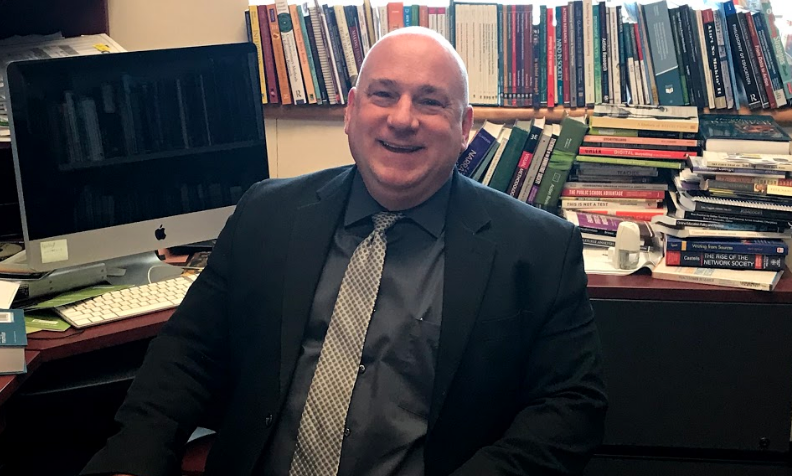
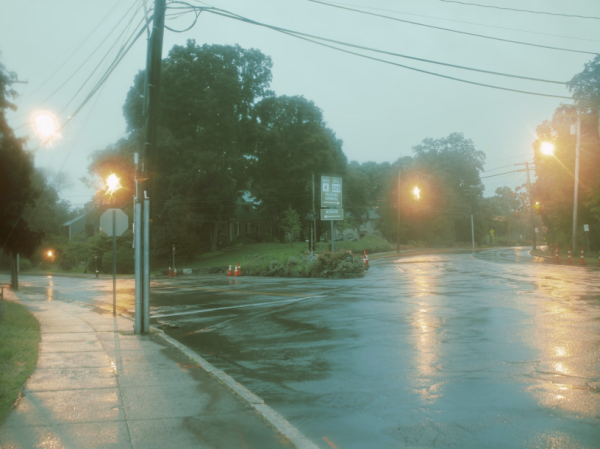
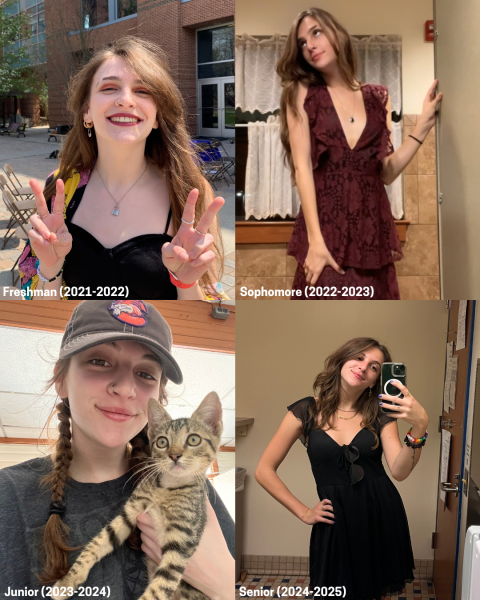
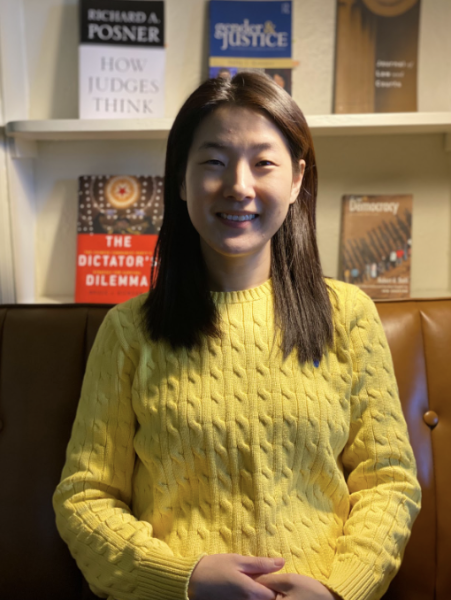

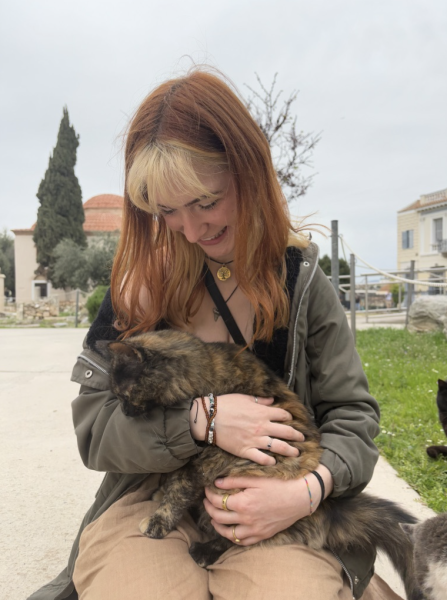
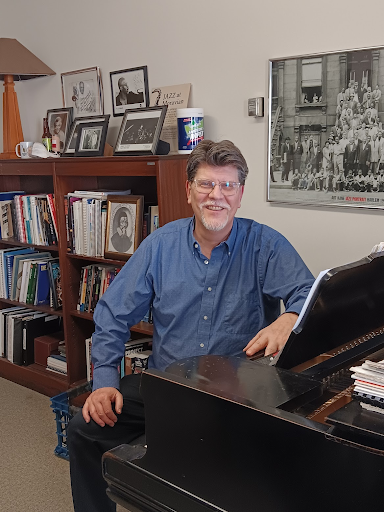
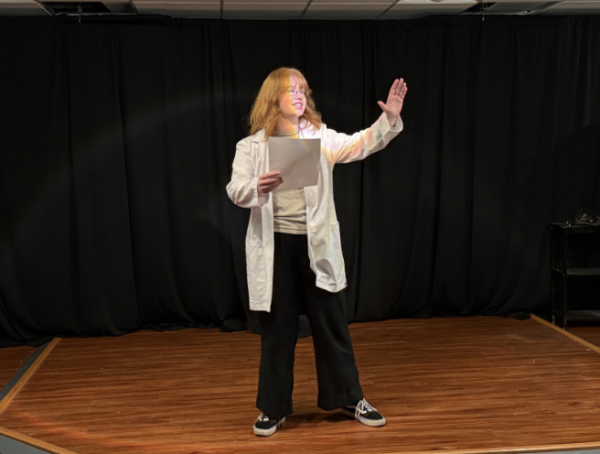
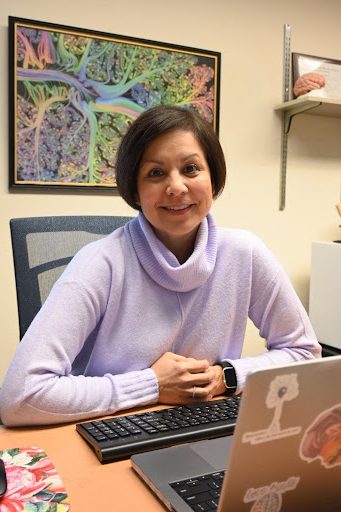
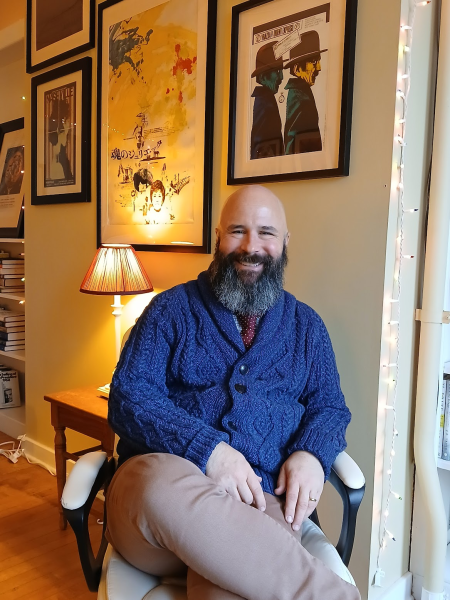
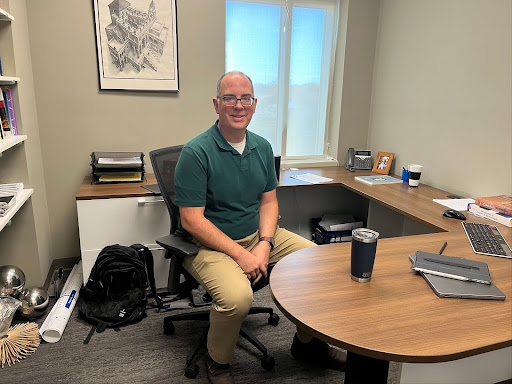
George Diamond • Apr 4, 2018 at 4:58 pm
Very meaningful interview from one of our most accomplished student/professors.
I’m proud to say that Joe was one of my students, and he always brought excitement
and substance to each class. His contributions to Moravian are exceptional.